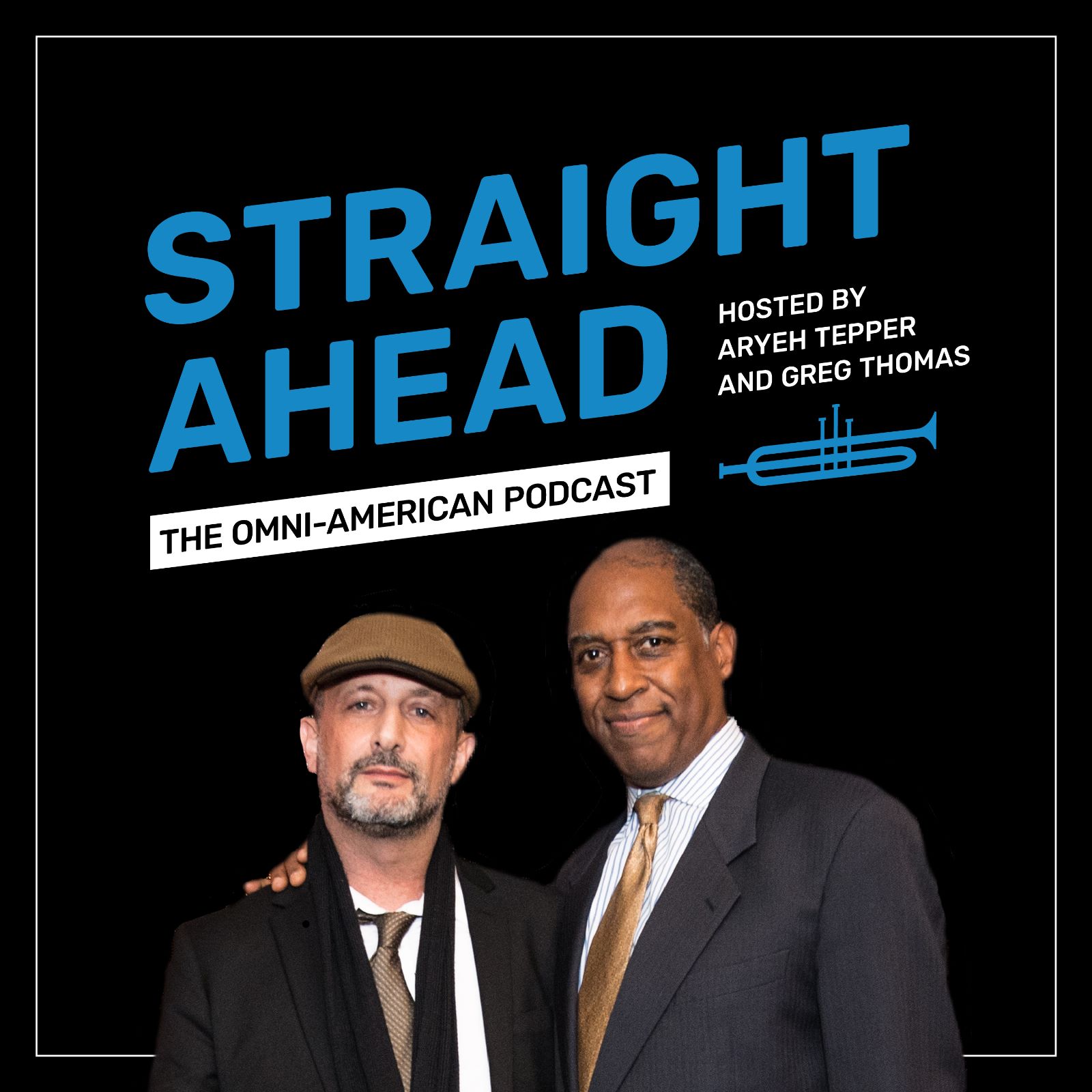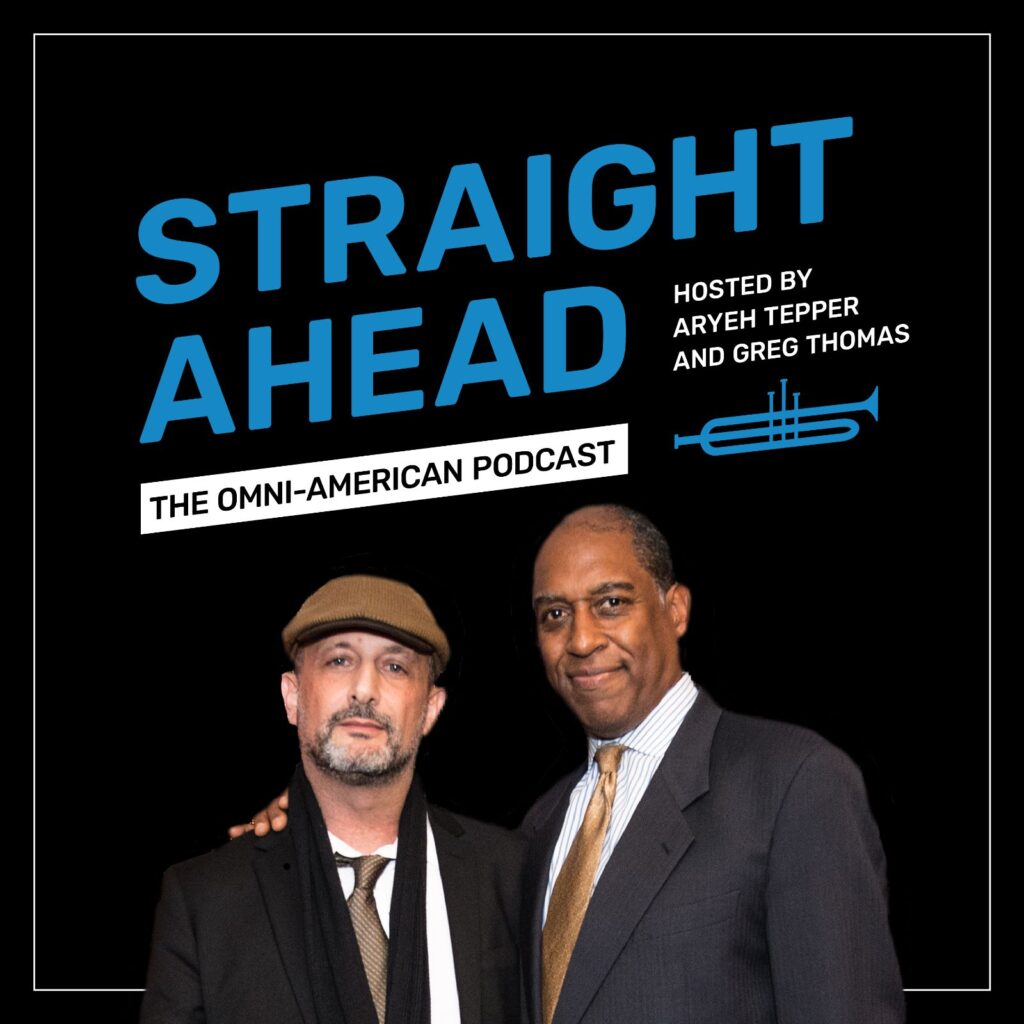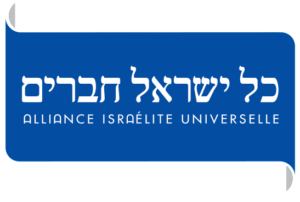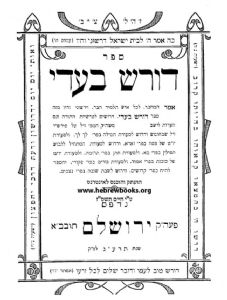American Excellence: Jews and the Jazz Tradition

In Honor of Bombay-born former US Federal Judge Abraham D. Sofaer, a Baghdadi Jew and Founding Chair of the National Jazz Museum in Harlem
Click here to dedicate a future issue in honor or memory of a loved one

Upcoming Events ◊ ASF Sephardi Shop ◊ Donate ◊ Sephardi World Weekly ◊ ASF IJE ◊ ASF Sephardi House ◊ Archive
The American Sephardi Federation’s Sephardi Ideas Monthly is a continuing series of essays and interviews from the rich, multi-dimensional world of Sephardi thought and culture that is delivered to your inbox every month.
The first President of the American Sephardi Federation, Prof. Daniel Elazar, characterized the Classic Sephardic tradition as “seriously Jewish, yet worldly and cosmopolitan.” The first Sephardi Chief Rabbi of the State of Israel, Hakham Bension Meir Hai Uziel, showed how the worldly and cosmopolitan character of Classic Sephardi Judaism is manifest in two ways: sensitive receptivity to human excellence, no matter the source, and an open and generous desire to participate in the human adventure:
Each nation which respects itself, does not and cannot be satisfied with its narrow boundaries and limited domains; rather they desire to bring in all that is good and beautiful, that is helpful and glorious to their national [cultural] treasure. And they wish to give the maximum flow of their own blessings to the [cultural] treasury of humanity as a whole. [Hegyonei Uziel, Vol. 2, p. 127; trans. R’ Marc Angel]
The Omni-American Tradition is an American parallel to Classic Sephardi Judaism, both deeply American but also worldly and cosmopolitan. The letters and art, especially music, that constitute the Omni-American tradition stylize a heroic, receptive, generous and joyful sense of life that grew up in America and whose ultimate expression is jazz, the “fully orchestrated blues statement” that has been adopted and internalized in cultural contexts around the world, including Israel.
The July-August issue of Sephardi Ideas Monthly brings together the Omni-American tradition and the Classic Sephardic tradition with a 50-minute Combat Antisemitism Movement-ASF-Jazz Leadership Project webinar, “Jewish American Contributions to the Jazz Tradition,” hosted by the ASF’s Director of Publications, Dr. Aryeh Tepper, in his role as Co-Director of the Omni-American Future Project, together with his partner, the co-Founder and CEO of the Jazz Leadership Project, Greg Thomas. The webinar explores five stories: the deep friendship between Louis Armstrong and the Karnofsky family; Benny Goodman’s pioneering role in integrating the bandstand at Carnegie Hall in 1938; the growth of Lee Konitz’s cool, introverted sound; the life and times of saxophone titan Michael Brecker; and the great jazz educator Arnie Lawrence’s influence on generations of exceptional musicians from New York to Jerusalem.
The first two stories highlight gratitude, both Louis Armstrong’s gratitude to the Jewish family that supported him and welcomed him into their home, and Benny Goodman’s gratitude to the Black American master musicians who pioneered the music that he played for a living. Gratitude and its fruit, freedom from resentment, facilitate an openness to human excellence no matter the source, and it’s no accident that the premier institution of concert music in America, Carnegie Hall, was first integrated in 1938 when Goodman shared the jazz bandstand with Master Musicians of all backgrounds and hues.
The webinar begins in New Orleans at the turn of the 20th c. and peaks in 21st c. Jerusalem by delineating a pedagogical line that directly connects Upper Manhattan to Jerusalem and that provided inspiration for the world-class sounds of Sephardi jazz, from Yemen Blues to The New Jerusalem Orchestra to Itamar Borochov’s “Bayyat Blues” at the Omni-American Future Project’s Nov., 2022, event at Minton’s jazz club. We would be amiss in this context if we failed to note that Karen Lehrman Bloch’s cover story for The Jewish Journal about the event, “A Jazz Concert Relives a Dream,” which was one of the winners at the recent 42nd Annual American Jewish Press Association (AJPA) Simon Rockower Awards.
It’s also no accident that prominent Greater Sephardi personalities have starred in Omni-American Future Project events, including R’ Daniel Bouskila, Roya Hakakian, Prof. Ephraim Isaac, Itamar Borochov, and more. The range of talents – a rabbi, a writer, a scholar, and a musician – each of whom naturally projects a rich Jewish identity while actively participating in American culture, reflects the deeply Jewish but naturally receptive sense of life that often is transmitted in Greater Sephardi communities.
The Omni-American Future Project promotes a robust middle path in American society and culture by aiming for the same heights that are celebrated in the Classic Sephardic tradition, the cultural realm that celebrates everything that is “good and beautiful, that is helpful and glorious,” no matter the source. By keeping its eye on this prize, particularly as embodied in the jazz tradition, the Omni-American Future Project cultivates a robust multi-cultural community in America that implicitly stands opposed to those on the left and right who fuel racism and antisemitism by reducing people to essentialized identities.
The Omni-American Future Project was launched in Oct., 2021, and to date has conferred four awards. In 2022, the Omni-American Young Leaders Award was given to writer, host of the popular podcast “Conversations with Coleman,” and musical artist Coleman Hughes, while celebrated Harvard professor, political theorist, public intellectual, and Director of the Edmond & Lily Safra Center for Ethics, Danielle Allen, received the Albert Murray Award for Omni-American Excellence. 2022 award recipients were Representative Ritchie Torres and Jazz at Lincoln Center’s Wynton Marsalis, respectively.
Sephardi Ideas Monthly will be back in September with the newest instalment in our continuing series, “Jews in Asia: From the Baghdadis to Ben Gurion & Beyond.”
An additional coming attraction in September can be found below. In the meantime, we wish our readers a wonderful and blessed summer.

~~~~~~~

The Monthly Sage החכם החודשי

The sage for the month of July, 2023, is Hakham Yihya Moshe Abudi (1844-1915).
Yihya Moshe Abudi was born in Baghdad, Iraq, in 1844. He studied in the Midrash Beit Zalicha and married Masouda, daughter of Abraham Yehoshua Eliezer. In 1875, Lord Yehezqel invited Hakham Yihya Moshe Abudi to Bombay, India, to tutor his sons and to be the community’s ritual slaughterer. After his time in India, Hackam Yihya lived in Shanghai before moving to Jerusalem, where he earned a living from commerce and studied Torah.
In 1907, at the age of 63, Hakham Yihya went on a two-year fundraising mission to cities in India. He passed away in Jerusalem in 1915.
Hakham Yiyha authored several works including Yigmor Ba’adi – on the Mishna; Magen Ba’adi – comments on the book Magen Avraham; and Doresh Ba’adi – on the Torah and Ethics of Our Fathers; Misharei Kitrin – on the Ba’al Tosphot’s commentary on the Talmud; and Hadar Zeqeinim – on the Mishna. Additional articles were published in Torah journals, such as Hame’asef, Torah Me’Zion and Or Torah.
In the following passage from Doresh Ba’adi, Hakham Yihya teaches that observance of the Torah is grounded in historical memory that is deeper than any external compulsion:
‘Moses commanded us a law, the inheritance of the congregation of Jacob’. I will explain this according to the commentators, of blessed memory. Since our holy fathers observed the Torah and took its yoke upon themselves, as we learned at the end of Tractate Kiddushin: Abraham our father fulfilled the Torah in its entirety, even before it was given, as it says ‘Because Abraham listened to My voice, and he observed my commandments, laws, and teachings’. If so, we too are obligated to observe it, the reason being ‘forsake not the teaching of thy mother’, and cannot claim to having been forced [as in] the statement ‘He held the mountain over their heads like a barrel’.
This is why ‘Moses commanded us a law’ was said. Despite the claim of having been forced, since ‘He held the mountain like a barrel’, we are, in any case, obligated to observe it for the reason that it is ‘an inheritance of the congregation of Jacob’ – the chosen among our fathers. Therefore we undertook the obligation to it [law] on the basis of ‘forsake not the teaching of thy mother’ so that nothing remains of the statement claim, simple to understand.
~~~~~~~

A Pizmonim: Sephardic-Hebrew Songs of the Middle East, Volume 1
By David Elihu Cohen
Pizmonim, a unity of poetry and song, have been an integral part of the Jewish People and may be traced in the Bible to the very beginning of our history.
The twelve selected Pizmonim contained in this booklet serve to perpetuate the Greater Sephardic culture and tradition of singing praise to the Lord on all joyous occasions.
Exploring Sephardic Customs and Traditions
By Hakham R’Marc D. Angel, Ph.D
Over the centuries, Jewish communities throughout the world adopted customs that enhanced and deepened their religious observances. These customs, or minhagim, became powerful elements in the religious consciousness of the Jewish people. It is important to recognize that minhagim are manifestations of a religious worldview, a philosophy of life. They are not merely quaint or picturesque practices, but expressions of a community’s way of enhancing the religious experience. A valuable resource for Sephardim and Ashkenazim alike.
~~~~~~~
Upcoming Events or Opportunities
The American Sephardi Federation’s Sephardi House Fellowship for college students
Wisdom, Creativity, Community on Campus
Apply Now to be a ’23-’24 ASF Sephardi House Fellow!
Application Deadline: 27 August 2023

ASF’s Sephardi House Fellowship is an innovative initiative that seeks to infuse the wisdom, diversity, creativity, and warmth of the Sephardic spirit into Jewish student life—while also advancing Jewish unity, vitality, and pride on campus. Bringing together a select cohort of Jewish students from colleges and universities across the United States, our program is the only national, yearlong fellowship dedicated to deepening a sense of Jewish belonging through an immersion in the multifaceted history, cultures, and intellectual legacy of the Greater Sephardic and Mizrahi world.
This enrichment and leadership development experience is composed of the following components:
1) 10 cohort-based learning sessions with influential Jewish educators, community and industry leaders, scholars, and artists, 2) one-on-one mentorship and tailored campus support, 3) free access to ASF’s robust educational resources and events, 4) two in-person Shabbaton leadership summits, 5) a capstone community-building project that empowers fellows to imbue Sephardic energy and their unique voices into Jewish student life, and 6) a $1,000 stipend upon full completion of the program.
Deadline: 27 August 2023
Joshua Benaim, a Harvard University and Harvard Business School alum and Founder & CEO of Aria Development Group, is the visionary leader behind the creation of Sephardi House. He was inspired to create Sephardi House to honor his father Carlos, who instilled in him a love for the Sephardic tradition and community.
Please write to info@americansephardi.org for more information on how you can get involved today!
Please support our work and help light a candle of wisdom and spirit on campus by donating now!
~~~~~~~
The ASF’s Institute of Jewish Experience presents:
The Aden Conference
Building on the success of the ASF and E’eleh B’Tamar’s “The Yemenite Conference: Jews and Muslims in Yemen” held in 2017 at New York’s Center for Jewish History, the Aden Conference will bring together the world’s leading scholars from Aden, Israel, US, UK, and Europe to explore the historical, cultural, and communal dynamics that intersected in Aden and its environs, particularly under British rule.
28-30 August 2023
Opening Night | JW3, London
Conference | Woolf Institute, Cambridge
Sign-up Now!

Co-Presenters:
Woolf Institute, ASMEA (Association for the Study of the Middle East & Africa), Aden Jewish Heritage Museum, Zalman Shazar Center, and Harif: Association of Jews from the MENA
~~~~~~~
Instituto de Música Judaica -Brasil, YIVO, the ASF’s Institute of Jewish Experience, & Brazilian Consulate in NYC present:
Kleztival NYC
Brazilian Jewish Music and Culture, a two-day program with Brazilian and North American artists.
Celebrating the 23 Brazilian Jews who, in 1654, arrived in North America and helped to build a city then called New Amsterdam, which later became New York. Celebrating Brazil, its Jewish roots and community today.
11 September at 6:00PM EST
Brazilian Jewish Music concert
@at the Brazilian Consulate in NYC
225 East 41st, New York, NY
(no registration required)
12 September:
3:00PM EST
Screening of documentary “A Estrela Oculta do Sertão” (The Star
Hidden in the Backlands) followed by Q&A with the producers
7:30 PM EST
Brazilian Jewish Music concert
@ the Center for Jewish History
Sign-up Now!

Executive Producers: Nicole & Edy Borger
Musical Director: Frank London
Singers: Carla Berg, Nicole Borger, Ahuva Flit and Rafael Zolko
Musicians: Pablo Aslan (bass), Vicente Falek (accordion),
Frank London (trumpet), Oren Neiman (guitar), Alex Parke (clarinet),
Satoshi Takashi (drums)
Documentary Producers: Elaine Eiger and Luize Valente.
Special thanks to:
Drora Arussy, Julia Rothkof, Miriam Mora, Suzanne Schwimmer, Alex Minkin, Thiago Antonio de Melo Oliveira, Tiago Domingues Carvalho, Aaron Alexander, Peter Rushevsky, Hanna Griff-Sleven, Felipe Pait, Eliezer Kahn, Bruno & Joyce Szlak, Angela Waitzberg, Bruce Phillips, Daniel Borger.
~~~~~~~
American Sephardi Federation presents:
Convergence: Arabic, Hebrew, and Persian Calligraphy in Conversation
Featuring the multilingual art of Ruben Shimonov Convergence creates a visual world where Hebrew, Arabic, and Persian languages interact with, and speak to, one another; a world where stylized letters and words dance together on the page; a world where cultures, religions, communities, and philosophies intersect.
Juxtaposing cognates from these ancient West Asian languages, artist Ruben Shimonov encourages the viewer to explore the deep-rooted connections between these tongues, as well as the multilayered and transnational identity of the artist himself.
On View in the Leon Levy Gallery through 16 July 2023
@ the Center for Jewish History

~~~~~~~
American Sephardi Federation and Mimouna Association’s Rebuilding Our Homes Project present:
Re-Creation: Judaica by Moroccan Muslim Artisans
Explore the exhibition of Judeo-Moroccan art, Moroccan Judaica, cultural and religious objects, including Menorot, Mezuzot, Yads, Shabbat Candleholders, Seder Plates, Hallah Covers, and much more.
On View through 31 December 2023
@ the Center for Jewish History

As Moroccan Jewish populations largely left the mellahs (Jewish quarters) in the latter half of the 20th century, there was a danger that not only designs but even the traditional artisanal techniques needed to create them would be lost. Passed down from one artisan to another and perfected over time, these designs and techniques. ranging from vibrant patterns to intricate metalwork and soulful wood carvings, are expressions of Moroccanity and reflect the individual character of each city. The materials and craftsmanship of Rabat are different than Fez, and Essaouira is distinct from both.
Mimouna Association and the American Sephardi Federation’s Rebuilding Our Homes Project, a multi-year USAID-supported New Partnerships Initiative, brought three notable experts-Ms. Zhor Rehihil, Ms. Deborah Koenigsberger Gutierrez, and Ms. Meryem Ghandi to train Moroccan Muslim artisans in the history of Judeo-Moroccan art and guided them in re-creating Moroccan Judaica, which encompasses a diverse array of cultural and religious objects, including Menorot, Mezuzot, Yads, Shabbat Candleholders, Seder Plates, Hallah Covers, and much more.